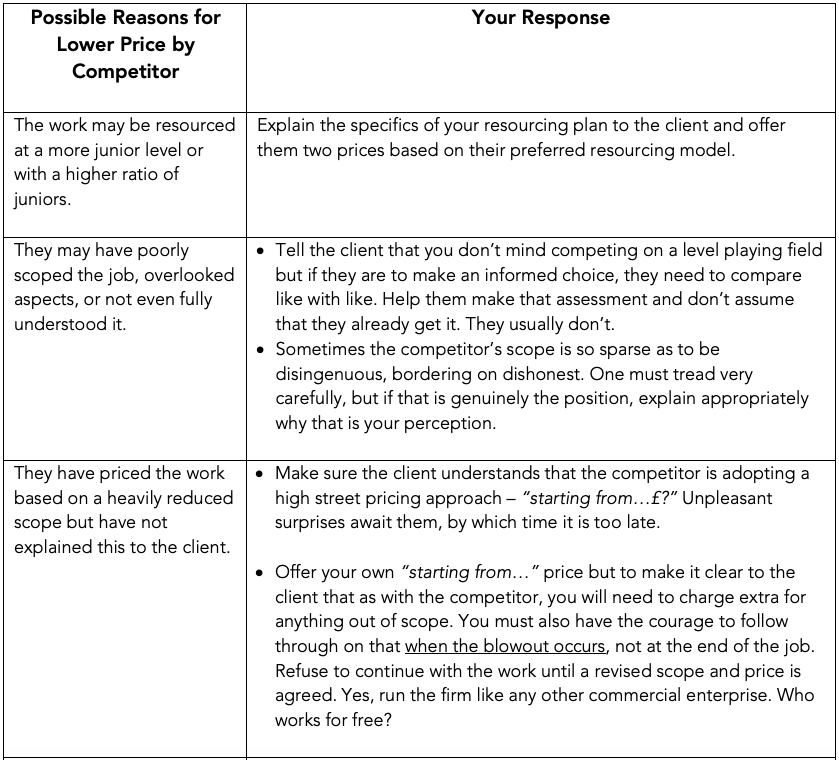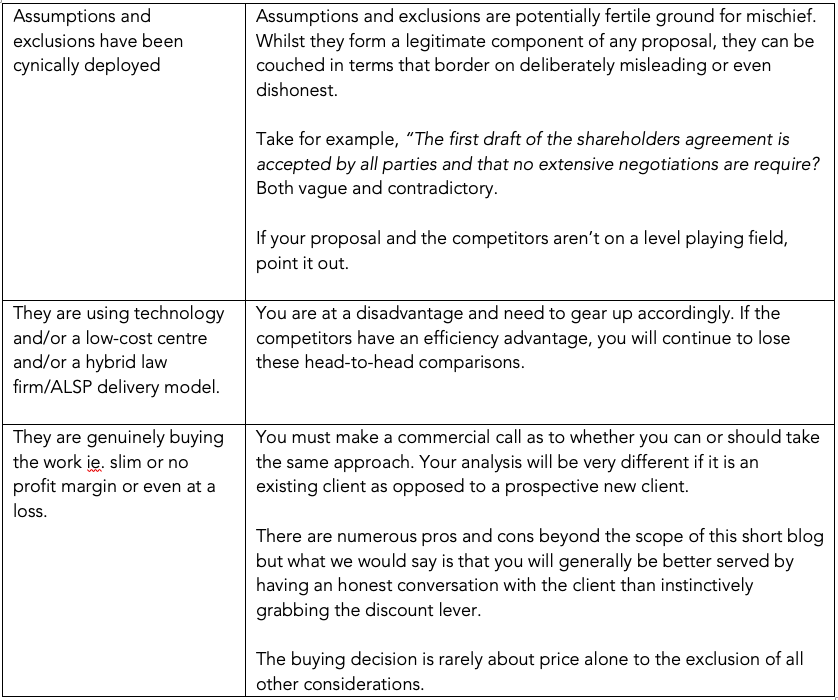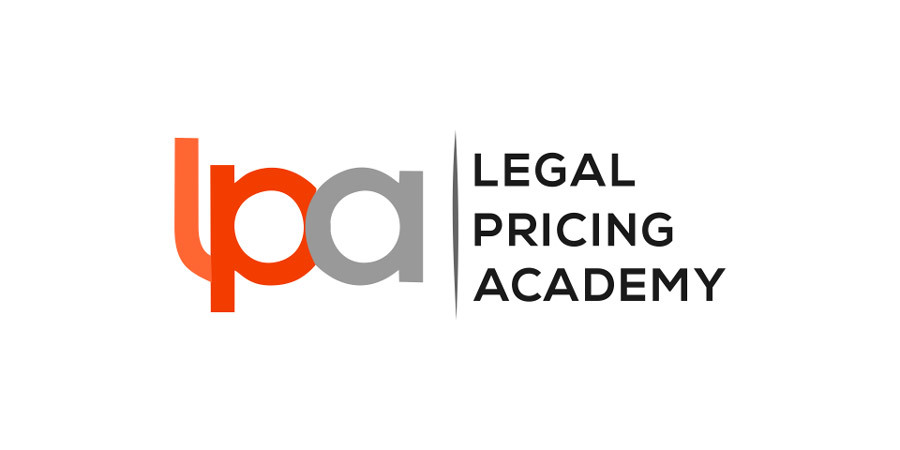When we are working with firms on pricing strategy and professional development of partners, it isn’t long before we are regaled with anecdotes about having lost work to a competitor who massively underquoted, only to ultimately bill the client more than what the first firm quoted.

Again this morning, another tale of woe. We are pricing jobs like this sensibly at £70,000 but a reputable competitor has told them they can and will do them for £40,000. They can’t possibly make any money at that. It’s plain dishonest.
Such vignettes are usually punctuated by unrepeatable expletives. The exasperation is palpable. Do we just accept it, or do we adopt the ‘if you can’t beat ‘em, join ‘em’ attitude?
No, and no.
First, we need to look at what the competitor is doing. There are several explanations, each requiring a different response and if you can’t be sure which is in play, then you need to deal with all of them.
But the thing they share is that the client often isn’t making a truly informed choice, and you have not only the ability to address that, but also the obligation to do so. Put simply, clients are often comparing apples with pears without realising it.
If you think you may be competing on a playing field tilted in your competitor's favour, then level it up. Even sophisticated clients sometimes need the screamingly obvious pointed out. Never assume that any asymmetry is self-evident. Spell it out in words of one syllable.
The assumption tends to be that the competitor is always just buying the work, it’s irrational and they will get what they deserve. Well yes, that is sometimes both the explanation and the outcome, but not necessarily.
Consider these scenarios…


While frustration with these antics is entirely understandable, you aren’t powerless to counteract them. But it requires a tactical response, not a knee-jerk reaction based on what may prove to be quite erroneous assumptions about the reasons for the competitor's behaviour.

